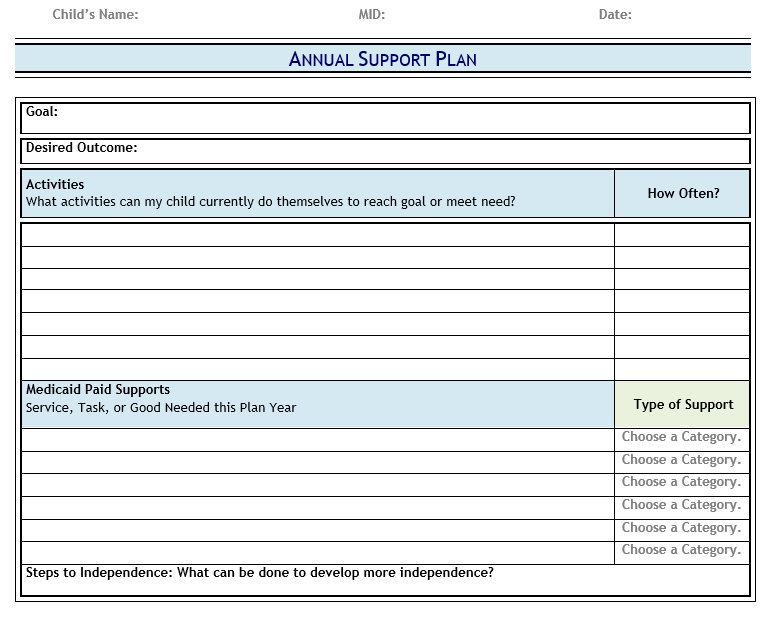If you have a heart for individuals with developmental disabilities, a CSW position might be a good employment fit. But, how does one get started in this field? What does CSW stand for? Who would be your employer? This field can seem ambiguous from the outside looking in. Hopefully, I can shed some light on the matter today.
First, “CSW” stands for Community Support Worker. This title that was assigned by the State of Idaho when they established this unique role over a decade ago. It may be helpful to learn a little bit of history about this role and the program it supports.
The State of Idaho recognize a need for individuals and families to have more choice and flexibility in their developmental disability (DD) services. Previously, all services were delivered through a DDA, or developmental disability agency. The emerging need for more choice gave rise to the development of the Family Directed Services (FDS) and Self-Directed Services (SDS) programs in Idaho. The FDS program supports children up to 18 years old and the SDS program supports adults 18 years and older.
Within these programs, participants are able to hire and manage their own staff (CSWs), with the assistance of an approved Support Broker and Fiscal Employment Agency (FEA). Families and individuals can set their own qualifications, decide how much to pay their employees (within established ranges), supervise their employees, schedule their workers and manage their own budgets (in alignment with program requirements). Many program participants report improved DD service consistency and quality as a result of access to these programs.
CSWs come from a variety of backgrounds and their skills can be quite diverse. Since the position qualifications are determined by each participant or family, the ideal work experience is difficult to pin down. Some families are seeking an individual who can provide more personal care support while others may need a person who can provide more emotional or relationship support. Many CSWs come from a background in childcare, healthcare or education. Others may have very little direct experience in any of these fields but possess critical characteristics like dependability, adaptability, compassion and patience.
Program participants work with their Support Broker to prepare an annual Support & Spending Plan (SSP) that details specific goals that will be worked on during the CSW’s hours. These goals are unique for each participant and may change from year to year. As a CSW, you are required to be listed in and given a copy of this Plan.
The pay range for CSWs can currently range from $7.25 per hour (Idaho’s minimum wage) up to $16.99 per hour. There are a few exceptions where a participant’s need is great enough to warrant a higher rate of pay. If this is the case, the rate will not exceed $20 per hour. The Idaho legislature has been asked to approve funds to increase the maximum CSW rates, however, this process has not been finalized. Due to the local labor market and cost of living increases, we will hopefully see these rates increase in the near future.
It may also be helpful to know that there are similar roles that operate within the DDA and Residential Habilitation Agency environments. Titles can vary from one agency to the next, but typically are posted as Habilitative Support Specialist, Respite Provider or Direct Service Staff. Within an agency, the employee typically receives a lower hourly rate (than a CSW) but profits from training, interventionist or BCBA guidance (when needed), more scheduling opportunities and, in some cases, employee benefits.
If this CSW role sounds like a good fit for you, you can typically find available positions on the Idaho My Voice My Choice Facebook page. You can also find active opportunities here on our CSW & Caregiver Jobs page. If hired, you will be required to fill out a CSW Employee Enrollment Packet that will be provided by the participant’s FEA. Your participant will also likely require a State Criminal History Check. You can start this process ahead of finding a role by creating an account here and selecting a time to get fingerprinted. Getting this step done in-advance will allow you to start in the position sooner. DHW background checks are valid for 3 years.
What other questions do you have about becoming a CSW? Please post them in the comments and I will circle back to answer them.
Please note: All information provided is based on the author’s personal experience and perspective. For definitive information about CSW positions and processes, please visit DHW’s website: https://healthandwelfare.idaho.gov/services-programs/medicaid-health/about-childrens-developmental-disabilities.
About the Author: Angela Watts is the founder of TheraJobs and the parent of a child with a developmental disability. She also serves as an advocate for FDS families and an Idaho Support Broker.







